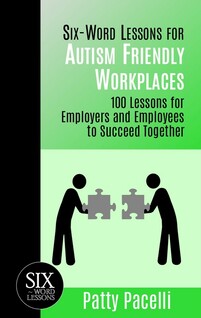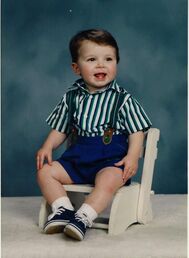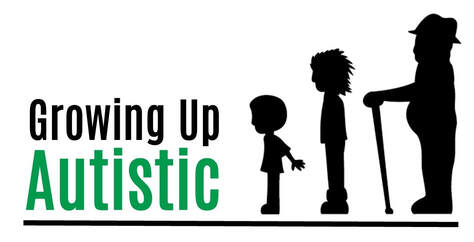
By Patty Pacelli
Parents should begin thinking about employment for their children on the autism spectrum when they are very young. Involving them in household chores, volunteer work and other projects will help prepare them for employment later on. Our son Trevor had weekly chores and took care of his own needs as much as possible, and as early as possible. He was choosing his own clothes, making his own breakfast, and getting himself up in the morning with an alarm by about 10 years old. By middle school, he was making his own lunch to take to school as well. He learned to take care of the cat, clean the bathroom and vacuum in elementary school as well. He found comfort in these weekly chores because of his need for routine and schedule-keeping. These tasks can help your child to become a dependable employee later on.
0 Comments

By Trevor Pacelli
It’s been a tale as old as time, a song as old as rhyme… Beauty and the Beast. It was one of the animated instant classics to trigger the Disney Renaissance of the 1990s, defined an entire generation of Disney fans, set off some of the most iconic songs ever to grace the screen, was honored in several lists by the American Film Institute, was preserved in the National Film Registry the second year it was eligible (which is a huge deal), and was the first animated film in history to receive an Academy Award nomination for Best Picture. 
By Patty Pacelli
When researching colleges for your student who may have learning differences, it is worthwhile to look at universities that have dedicated centers or programs that go above and beyond the standard academics for your student, such as the SALT (Strategic Alternative Learning Techniques) Center at The University of Arizona. 
By Trevor Pacelli
Dealing with the death of a relative is never easy for anyone, there are lots of mixed feelings, grudges against other family members, and doubts about the future. I personally have lived a charmed life up to this point, as no relative significantly close to me has died. I did lose an aunt to lung cancer about five years ago, and it was certainly sad for all of us, but I had no real personal connection with her. I also lost another aunt to old age, but it was not nearly as sad for any of us, for she had severe dementia and dying peacefully in her sleep was what all we really wanted for her. 
By Trevor Pacelli
Most everyone has had a pet at some point. Thus, many also had to bear that tough day when the cat, dog, parakeet, or hamster breathed its last breath. Knowing a pet’s tendency to become a member of the family, losing them can feel as tragic as losing a longtime friend. 
By Patty Pacelli
As our son Trevor reached about 18 months, we noticed he had stronger than normal reactions to certain happenings in his day. He got extremely upset at anything that interrupted the schedule that he had formed in his mind. He couldn't verbalize his feelings or thoughts at that age, so he would cry, scream and throw himself on the floor. Even when he became more verbal, at about 4, it was still difficult for him to explain what was wrong, and to control his emotions. He exhibited these behaviors in settings such as church and preschool, so on the way to church in the car we would coach him and have him repeat, "No yelling, no hitting, no falling down." We aren't sure how much that helped, but he remembered the words. |
Inspiration for Life with AutismThis blog has a variety of articles about people living life with autism, and topics and ideas that can help in the journey. Guest bloggers are welcome. Inspired by Trevor, a young adult film critic, photographer and college graduate on the autism spectrum. Categories
All
Archives
April 2024
|
Proudly powered by Weebly

 RSS Feed
RSS Feed